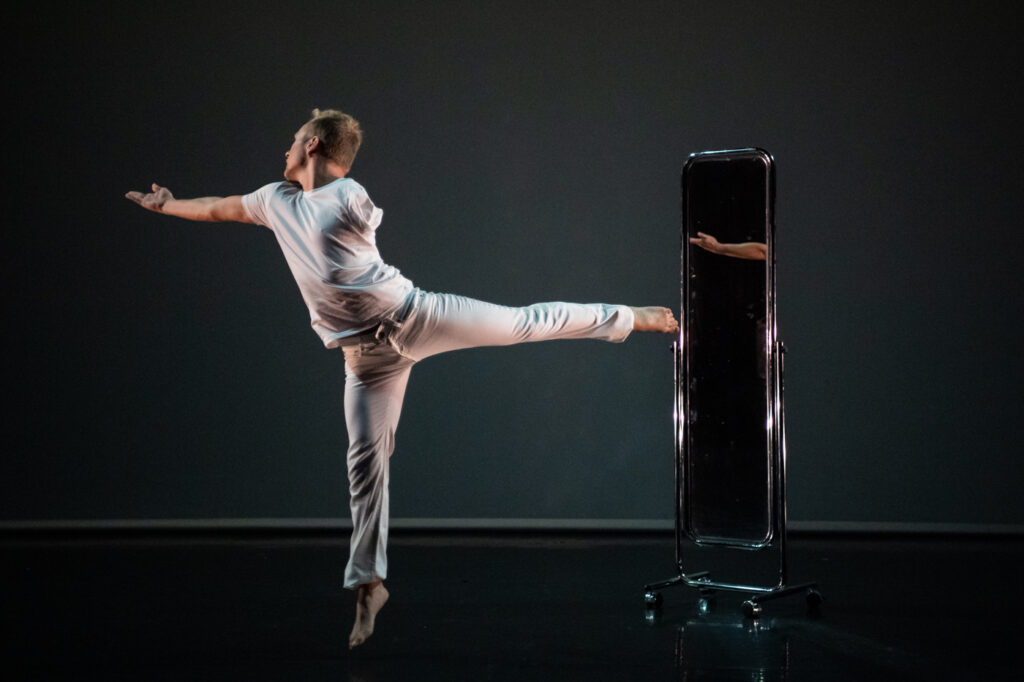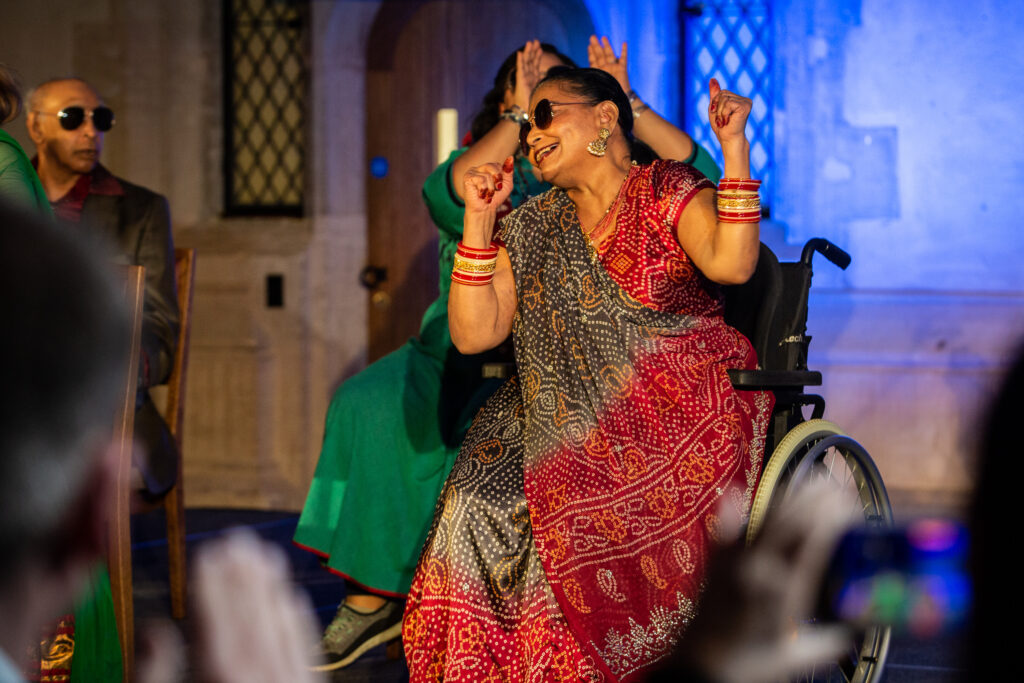Promoting potential through Bollywood and Ballroom
16 January 2022
danceinclusioninvolvementBy Dr. Rashmi Becker, MBE. Founder, Step Change Studios

I have always loved dance. There’s something empowering about expressing yourself through movement and music. Growing up with an older brother with severe Autism, I developed an understanding of a non-verbal world in which communication and self-expression can be presented without words.
As an adult, as I developed experience working with disabled people, including in social care settings, I realised there were few inclusive opportunities to participate in dance. I had seen dance, and the arts more widely make such a positive impact on disabled people’s quality of life, I decided to set up ‘Step Change Studios’ and provide dance opportunities for all ages and abilities.
I thought this would be a part-time pursuit, but the demand to take part kept growing. We now deliver a wide range of classes, workshops, performances, and creative initiatives in different settings including social and healthcare, education, arts, and community spaces. We also provide practical training on how to support disabled people’s participation in dance. Our range of dance styles has also increased in response to demand, and we have not been afraid to innovate.
We created the first dedicated blind ballroom and Latin dance programme which saw participants go from never having danced, to performing on stage and passing their first dance exam. I produced the first professional integrated ballroom dance production at Sadler’s Wells providing a platform for 20 artists. We work with people with complex needs, using sensory engagement to connect people with music and movement. We established an annual grassroots initiative inspired by ‘Strictly’, providing free dance workshops and a friendly competition where participants perform with professional partners to a live audience. The focus of all our work is developing individual potential, and creating a positive experience for all our dancers.

More recently, in response to the disproportionate impact of the pandemic on carers, and ethnically diverse communities, we created initiatives that I am especially proud of. Dance Dosti was an ambitious project targeted at disabled people of South Asian heritage. We created over 100 online dance sessions in four different languages, with seated and standing options. We then piloted dance programmes in 5 areas of London with higher South Asian populations. We have since extended this work to Birmingham. Conversations with Carers was a multidisciplinary project which involved interviews with carers sharing their lived experience. This inspired five short dance films interpreting themes that emerged from those conversations. This was an especially personal project, and extremely moving as I had been navigating the emotional roller-coaster of not being able to see my brother during the pandemic, which led to conversations with other artists with caring responsibilities.
Looking forward, Step Change Studios will continue to address gaps in provision – both directly by providing inclusive, fun opportunities for people to dance, but also by maintaining our advocacy work to improve diversity and inclusion in the arts through better policy, practice, and proactivity.
